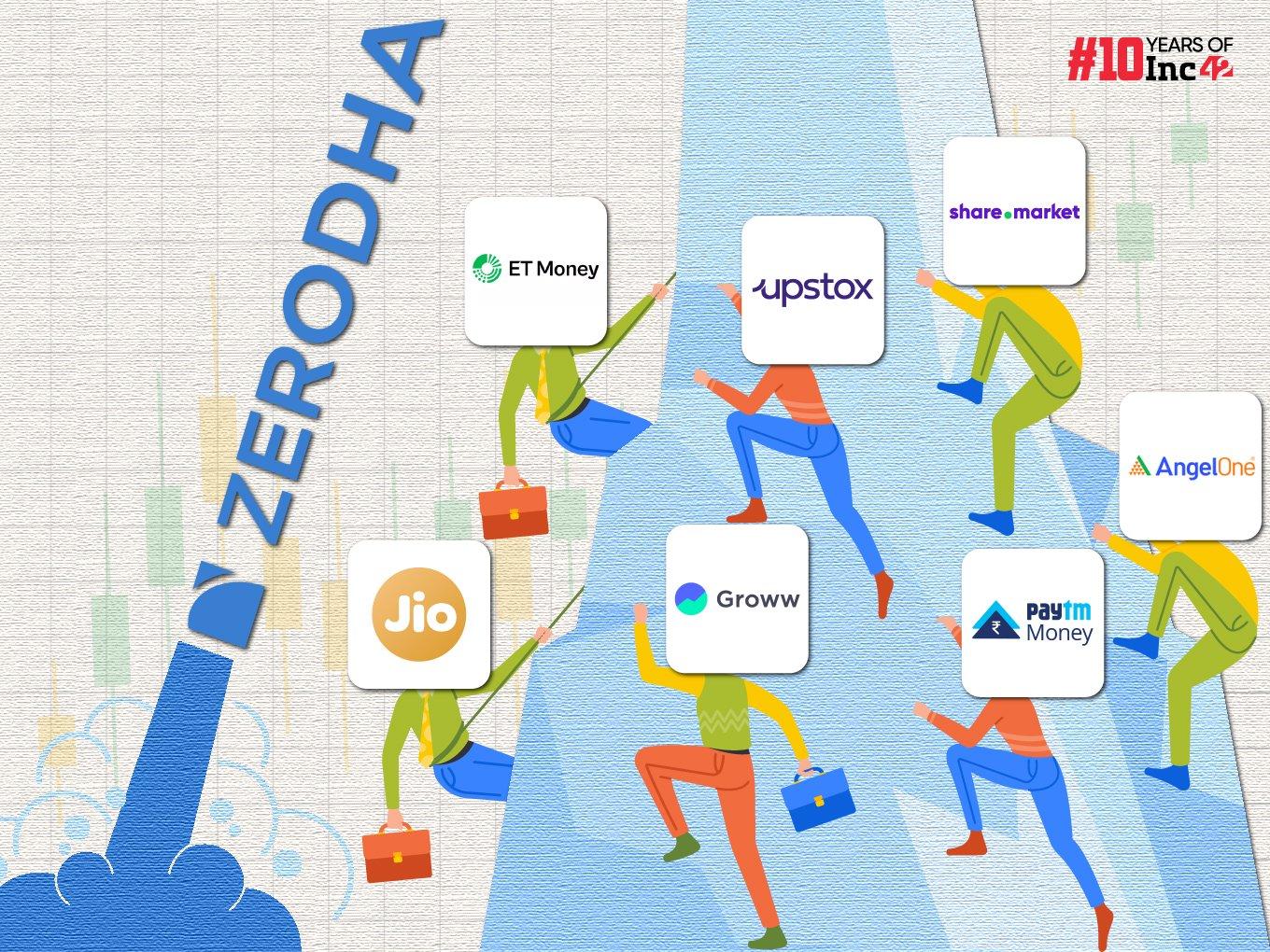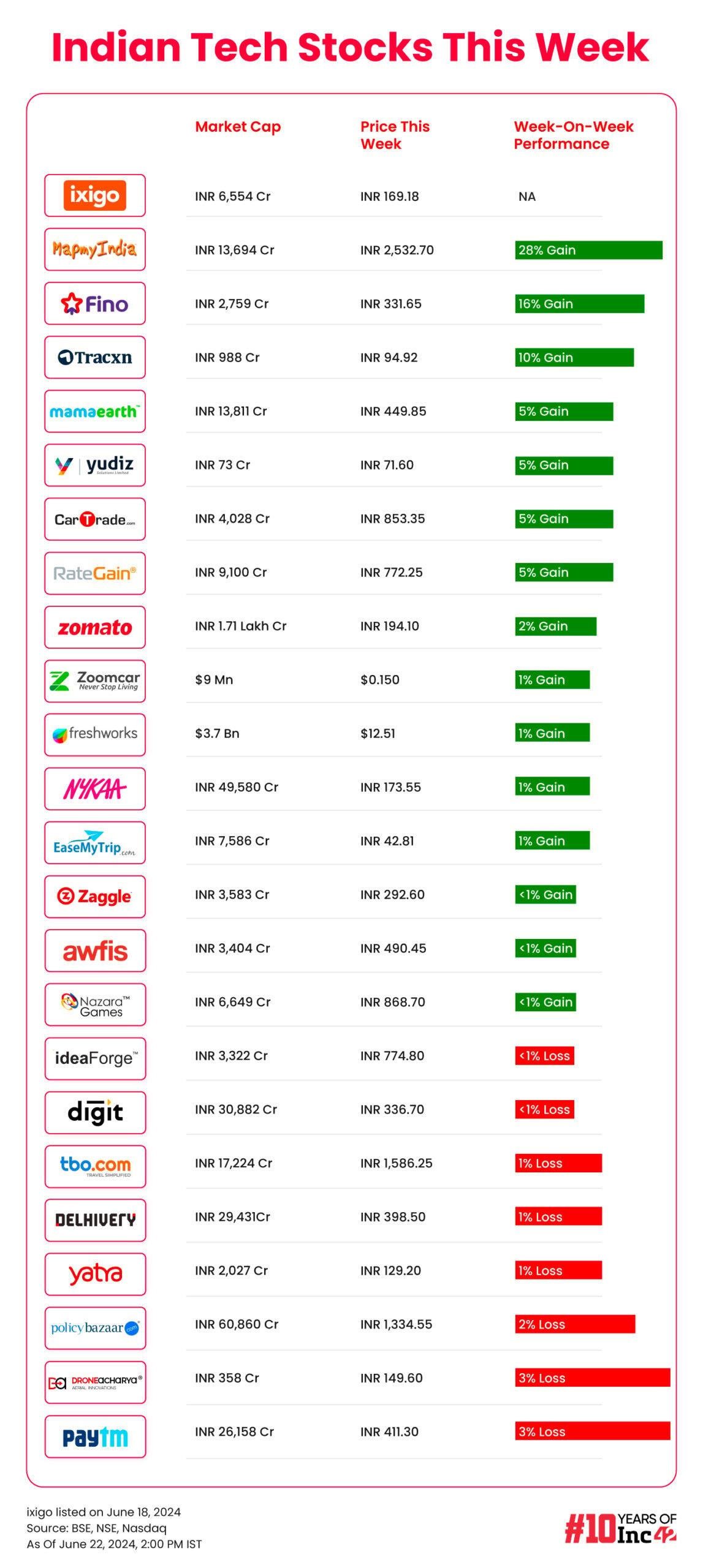
Zerodha was down again this week, as the platform was struck by an outage just before 10 AM on Friday, June 21, rendering users unable to place new stock trade orders or modify existing ones.
This was the second such outage just this month, after a similar one took down Zerodha, Groww and others on June 3, a day before the results of the 2024 General Elections.
And over the past two years, there have been over a dozen such outages on Zerodha’s platform alone, with others such as AngelOne, Groww and Upstox also facing some challenges on occasion. It’s no coincidence that these outages have come as the overall base of Indian retail investors has grown exponentially.
But given this spurt of new users, any doubts about platform stability can also see users jump ship. Zerodha, which lost out to Groww in terms of active investors last year, is especially under the heat. Other platforms are catching up and the entry of Jio Financial Services has also made it more difficult to compete in this space.
So is Zerodha’s lead under threat — that’s what we are looking to answer this Sunday, but after a look at these top stories from our newsroom this week:
- Upheaval At Reshamandi: After burning through $40 Mn of VC money and more in venture debt, ReshaMandi is looking to respawn through another company. Here’s the full story of the B2B marketplace
- Zomato’s Next Target: After grabbing a lion’s share of the quick commerce segment with Blinkit, Zomato has now set its sights on the events and movie ticketing business. Will the potential deal with Paytm have the same fairytale ending?
- Edtech Consolidation: Edtech unicorn Unacademy and K-12 Techno Services have been in discussions for a potential acquisition of the former, according to Inc42 sources, but the deal hinges on Unacademy’s path to profitability
Rivals Feast, Zerodha Watches
Just a couple of years ago, Zerodha’s lead in the active investor base seemingly looked untouchable, and this gave it an aura of being the de facto platform for online trading. But Groww had other ideas, and it used VC funds to acquire users by the millions.
The pandemic-fuelled boom in online trading had seemingly worked more in favour of Groww and others of its ilk than Zerodha. While Zerodha had already reached 6.5 Mn active investors by June 2022. In comparison, Groww was second at 4.4 Mn active investors.
But nearly one year later, by March 2023, Zerodha was still at 6.4 Mn investors, while Groww’s base had increased to 5.4 Mn users. The momentum was in Groww’s favour as it finally surpassed Zerodha in September 2023, and reached 6.63 Mn as against Zerodha’s 6.48 Mn.
Launched in 2017 — seven years after Zerodha — Groww raised a staggering $360 Mn in 2020 and 2021 to smash its way through the investment tech market.
In fact, Groww only launched stock trading in 2020 and primarily focussed on mutual fund investments till then. After it raised its first major round of $30 Mn in September 2020, the Bengaluru-based fintech super app has rapidly added many other asset classes and trading platforms.
It would seem that most of the user boom of the past four years has been seen by platforms other than Zerodha. Groww now boasts over 1.03 Cr (10 Mn) active investors on its trading platform as of May 2024, with closest rival Zerodha coming in second with 75 Lakh (7.5 Mn) active investors.
Among other investment platforms, Angel One gained 1.84 Lakh users in May, taking its total count to 64.86 Lakh, while Upstox has an active user base of 25.91 lakh, and Paytm Money had 7.86 Lakh active users as of May 2024.
Outages Galore For Zerodha
Incidentally, as Groww was catching up, Zerodha was mired in issues such as outages. Between 2021 and 2023, the bootstrapped startup faced as many as 15 technical glitches during trading, leading to customer complaints.
As we saw in our year-end survey on customer sentiment in 2023, customers preferred rival platforms to Zerodha due to the outages and tech glitches. Groww, Upstox, Angel One scored higher on this front.
In 2024, we have seen three outages that have been widely reported — including one in January and two in June. To be fair, two of these outages affected other platforms as well, such as the disruption to mutual fund transactions and orders on June 3, 2024, which also affected Groww users. But as the largest investment tech platform in India by revenue, Zerodha definitely gets a lot more attention.
Last year, the BSE’s Grievance Redressal Committee asked Zerodha to compensate a trader for losses due to a technical outage. The order said that Zerodha failed to take corrective action despite being alerted by the exchange. However, Zerodha called parts of the order a “blatant mistake”.
And in many cases, the outages are short lived. The most recent one on June 21, 2024 lasted just 30 minutes from what Inc42 could understand, but since this happened just after the markets opened, users were understandably frustrated.
What Explains The Glitches?
Our conversations with industry players revealed that Zerodha alone is not impacted by outages, but there is a bigger glare on the platform. However, a lot of the older investors still use Zerodha and they seem to have a louder voice on social media and generally have more influence on other investors.
This puts Zerodha immediately under the spotlight whenever there are issues. Plus, Zerodha founders Nithin Kamath and Nikhil Kamath are always in the public glare and responding to issues and user challenges on social media, which makes it easier for others to talk about these problems openly.
From a technical standpoint, Zerodha or Groww or any other platform have not explained why these outages happen, except for the disruption on June 3 a day before the Lok Sabha Election results. Coin, Zerodha’s mutual fund platform went down and a similar disruption was seen on Groww.
It must be noted that the record gains seen on June 3 in the stock market were followed by the biggest crash in four years. This volatility resulted in crores of losses for investors, but many also blamed the outages for their losses on June 3.
Neelesh Verma, product head for Coin by Zerodha, said at the time, “We work with multiple payment aggregators, and one of them faced issues on Tuesday. Even after pointing out the problem on time, it could not be fixed. As we work with multiple payment aggregators, only a small percentage of the transactions were affected.
Groww also said it was a problem with payment aggregators and gateways that impacted users. “In MF investments, money flows directly from customer accounts to the banks (managed by payment aggregators or through direct integrations, not touching intermediaries like brokers or MF distributors), where it is aggregated and sent to the clearing corporations. The delay in receiving money by clearing corporation resulted in delayed NAV,” the company’s statement said.
While there is ire among users, they also acknowledge that the benefits of Groww or Zerodha outweigh the odd disruption. Yes, it can be a big problem on key days like June 3, but overall, investors say that these platforms have made it easier for everyone to invest, which has brought investments into mainstream conversation.
“If you look at the past month, Groww has faced just as many issues, but mostly everyone talks about Zerodha. As Groww’s user base has grown, there have been just as many complaints about Groww,” said one Bengaluru-based investment advisor, who added that many investors have moved to Groww when Zerodha had issues and they also move to Zerodha when Groww has problems.
As such, neither platform wins or loses from one isolated incident. It’s just about long-term stability and Zerodha has definitely had issues in this regard over the past two years. It doesn’t help that it has also lost users during this period, or at least has not capitalised enough as the market has boomed.
Zerodha Up Against It
Given the rising competition, its tech issues and the slow user growth, perhaps Zerodha should be worried. The company has never spoken about competition except to explain the rationale for its annual maintenance charge (AMC) of INR 300 which investors don’t have to pay on other platforms.
The Kamath brothers have always claimed that the AMC allows Zerodha to offer investors the best features and new products. But in light of the disruption, there are many questions that users have raised about the fee.
What Zerodha’s fee model means is that it has the operating revenue among investment platforms as of FY23. Even retaining a portion of its 75 Lakh active investors automatically brings in hundreds of crores in revenue for Zerodha based on the AMC alone.
The platform’s revenue grew 37% to INR 6,832.8 Cr in FY23 from INR 4,977.3 Cr, while profit grew to INR 2,908.9 Cr. The profit itself is higher than the revenue earned by both Groww and Upstox.
In contrast, Groww recorded INR 1,277 Cr in operating revenue last fiscal and turned profitable for the first time since inception. Upstox also claimed it turned profitable in FY23 with a consolidated profit of over INR 25 Cr, on a revenue base of over INR 1,000 Cr. However, the company has not filed audited financials yet.
Angel One, the third largest platform after Groww and Zerodha, reached INR 3,000 Cr in revenue in FY23, with INR 889 in net profits. This is the closest rival to Zerodha in terms of revenue from online stock broking.
Angel One is the only platform to release its FY24 numbers, which show a revenue YoY jump of over 35% to INR 4,520 Cr, while profits grew to INR 1,125 Cr. What will be really interesting to see is where Zerodha ended up in FY24, even as the likes of Jio Financial Services and PhonePe continue to press the accelerator on their respective investment platforms.
The company has lost its pace of user acquisition, while rivals such as Angel One have caught up and Groww has surpassed it. With IPO season in full swing (at least for new-age tech companies) and likely to continue well into 2025, investor activity is expected to surge in the next few years.
Historically, new high-profile IPOs draw a lot of casual and new investors to the market and we saw this happen with nearly a dozen listings in 2021. Now that Go Digit, Awfis, TBO Tek, ixigo and others have listed, and the likes of Mobikwik, Ola Electric, Swiggy, PhonePe and Flipkart expected to come to the IPO table next, India is on the cusp of a major inflection point in stock market investing.
Can Zerodha capitalise on this new gold rush with its 15-year-long experience of catering to the Indian investor? Or will its baggage of tech glitches hold it back against competition that is on the rise?
Sunday Roundup: Tech Stocks, Startup Funding & More
- Led by Zepto’s massive $665 Mn round, Indian startups raised over $800 Mn across 29 deals this week, the largest weekly tally in months
- Google has hit pause on real money games on the Play Store in India and globally, citing the absence of a licensing framework and monetisation model challenges. Another blow for India’s online gaming startups

- Travel tech major ixigo saw a rousing debut on the stock markets getting listed at a 45.16% premium on the BSE earlier this week
- Logistics giant Blue Dart has commenced drone deliveries in partnership with drone startup Skye Air with an initial focus on ecommerce deliveries and last-mile services
The post title=”Zerodha’s Downtime Blues” href=”https://inc42.com/features/zerodha-outages-downtime-competition-user-growth/”>Zerodha’s Downtime Blues appeared first on Inc42 Media.



![[CITYPNG.COM]White Google Play PlayStore Logo – 1500×1500](https://startupnews.fyi/wp-content/uploads/2025/08/CITYPNG.COMWhite-Google-Play-PlayStore-Logo-1500x1500-1-630x630.png)